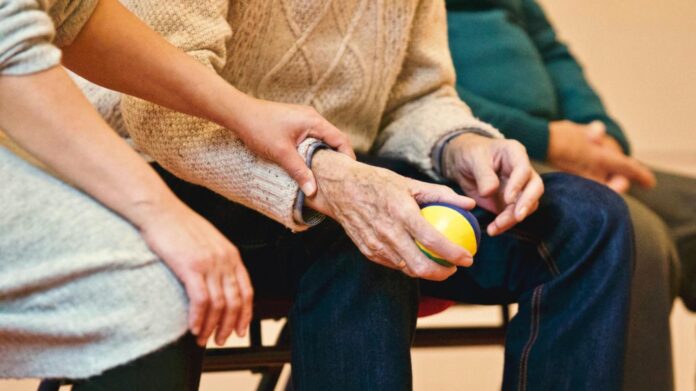Aging is one of the most natural experiences. We come into this world, naïve and pure, and then experience the amazingness of each age as we grow up.
Once a crying baby in diapers, we transform from naughtiness on two feet into beautiful adults and sober grey heads. Each age group has its joys, contentment, and complications. From no energy to the highest level and then back to crouching, leading us into Old Age, we soon become known as senior citizens.
We expect our lives to become more accessible as we grow older. We look forward to old age as the period in our life when we can finally unwind. But, while our golden years might be some of the most enjoyable of our lives, there are always concerns.
Senior citizens face difficulties that are general to all ages and unique to their age group. Problems from sensory impairment to loss of voluntary actions are irritating and frustrating for the individual. It impairs quality of life, and it feels as if they have lost control over their own lives.
A community-based cross-sectional study showed that problems such as visual impairment, hearing impairment, and urinary complaints were 83.29% in elders.
Older adults need attention and care more than any other age group. They require individuals or systems to manage their daily requirements and provide them with quality of life and physical, social, and psychological well-being. Communities in different states usually look after their senior citizens. In Ohio, for instance, there are Ohio elderly services programs that offer a wide range of resources and services which are senior-focused. These services aid in solving problems such as mental and physical health issues that accompany aging.
So, without further ado, let’s talk about the ten most common health issues affecting senior citizens:
1- Sensory Deficits
Multisensory impairment is the most common prevalence in senior people. It is one of the significant indicators of quality of life. Loss of one sense puts pressure on other senses to perform better, leading to a cascade reaction resulting in multisensory loss or decline in performance. Depression, low quality of life, cognitive decline, and death are all associated with vision impairment. According to one of the studies conducted in the US, Depression, low quality of life, cognitive decline, and death are all directly associated with vision impairment.
2- Body Aches and Pains
All those years of work and effort result in progressive wear and tear of the muscles and joints. As a result, they lose their flexibility and mobility—loss of synovial fluid results in a painful rubbing of the joints, hence the agony.
Back and joint pains are the most common type of pains. If not taken care of, these can lead to life-threatening mobility losses.
3- Dementia
Dementia is a decline in memory and cognitive function that impedes daily life. It is not a disease but a collection of symptoms. It can be as simple as forgetting small things like where you put something to the very complex stage of personality changes, paranoia, and depression.
These citizens need immense care and empathy. They usually ask a lot of questions trying to remember everything.
Earlier detection of these conditions by noticing behavioral changes can help mitigate the effects.
4- Diabetes
Though diabetes is a shared problem of both old and young adults, its chances at a later age are higher, and its management is also problematic for seniors. Diabetes takes away the colors of life as all sweet things get banned. However, with the advent of modern medicine and technology, artificial sweeteners are now available and work like a charm.
5- Cardiovascular disease
Cardiovascular diseases have a similar profile as diabetes and can occur at any age. Its sustenance for older people is complicated as the repair procedure in older adults is not as fast as in young ones. It is also one of the significant sources of diminishing physical activities for senior citizens and one of the leading causes of death in people over 65.
6- Increased episodes of infections
The decline in the function of immune cells causes a decrease in the body’s capacity to fight infectious foreign bodies and hence increased occurrences of diseases. Not only are conditions regular, but they are also harsher.
COVID-19 was severe for old adults because of the sluggish immune response and healing mechanism.
7- Sarcopenia
Sarcopenia is a continuous loss of skeletal muscle mass, strength, and function. Breakdown signaling in the body is more than growth signals, and the body is resistant to any stimulus of muscle growth and repair. Lesser muscle mass means lesser strength and energy; hence this is directly related to mobility, frailty, morbidity, and mortality. A sedentary lifestyle leads to sarcopenia and vice versa.
8- Cancer
Cancer becomes increasingly frequent as we become older. It is the second leading cause of death in older people as it behaves more aggressively.
Breast cancer in women and prostate cancer in men is the most common type of cancer. The good thing is that we can prevent 4 out of 10 cases with the advancement of medical science.
9- Hypertension
Hypertension is a condition developed due to blockage of arteries. The blockage occurs because of high cholesterol and fat levels. They cause narrowing of the passages and restrict blood flow, which causes the heart to pump with high pressure so that blood can reach the organs. Hypertension is the mother of all diseases, leading to cardiovascular disorders, stroke, heart attack, and aneurysms.
10- Psychological Sense of Illness
Though not an illness, this is one of the significant patterns seen in senior citizens. In their mind, they have all the diseases in the world, from backache to shortness of breath to heart conditions.
According to Natalie Sachs Ericsson, people encounter substantial changes and confront significant obstacles as they age, such as changes in their employment, retirement, and the death of loved ones (friends and family members).
This negative vibe has an overall lousy impact on mental health, and they have a feeling of being ill all the time, although their test result may be the opposite.
Conclusion
Being old doesn’t have to be dull and full of frustrations, worries, and anxiety. Senior citizens usually go through a difficult phase of accepting their dependency on others, leading to profound personality changes. However, senior citizens can live a healthy life with proper care and compassion.
It should be our responsibility as individuals to take good care of the golden-ager in our family and around us.





















